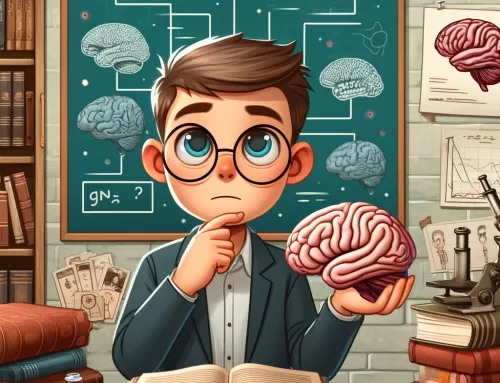Would you like to be one of the 62 people in the world having been diagnosed with hyperthymesia as of 2021 like Marilu Henner?
Marilu Henner is best known for her role as Elaine Nardo on the popular TV sitcom “Taxi,” which aired from 1978 to 1983. If you give Marilu Henner a random date in the past, she can recall it with amazing clarity. Take April 30, 1980. “It was a Wednesday,” she says without hesitation. “I was in Cancun, Mexico, with my boyfriend at the time, who was soon to be my first husband.”
She remembers wearing a cream-colored jumpsuit with harem pants and a stretchy strapless top with a turquoise jacket. “I drank tequila for the first time, and then never again for 25 years!” she says with a laugh. “The weather was beautiful that night, but it poured rain the next day, and all the plumbing in our resort went out. The whole thing comes back. It’s like remembering your address or phone number or the color of your eyes. It’s just there.” (1)
Hyperthymesia, also known as highly superior autobiographical memory (HSAM), is a rare condition characterized by an extraordinary ability to recall personal past experiences in great detail. Studying hyperthymesia is important for several reasons:
- Understanding Memory Processes: Hyperthymesia provides a unique window into how memory works. By examining individuals with this condition, researchers can gain insights into the mechanisms of memory retention, recall, and the overall structure of memory in the human brain.
- Neurological Insights: Studying people with hyperthymesia can help scientists understand the neurological basis of memory. This can include which parts of the brain are involved in extreme memory capabilities and how these areas differ from those in the general population.
- Memory Disorders: Insights gained from studying hyperthymesia could help in understanding and treating memory disorders. By contrasting hyperthymesia with conditions like Alzheimer’s disease or amnesia, researchers might develop new approaches to managing these illnesses.
- Cognitive and Psychological Impacts: Understanding how having an extraordinary memory affects psychological well-being and daily functioning can provide important insights. For instance, how does remembering almost every detail of one’s life impact their decisions, relationships, and emotional health?
- Development of Memory Aids and Tools: Knowledge from hyperthymesia research might contribute to the development of better memory aids or educational tools, helping people enhance their memory skills.
- Contributions to Forensic Science: Hyperthymesia could offer insights into the reliability and mechanisms of eyewitness memory, potentially influencing legal contexts where eyewitness testimonies are crucial.
Thus, studying hyperthymesia not only advances our understanding of memory as a cognitive function but also has practical implications across various fields.
Life for someone with hyperthymesia can be quite unique and comes with both advantages and challenges:
- Exceptional Memory Recall: People with hyperthymesia can remember vast amounts of personal events and experiences, often in minute detail. This includes specific dates, exact conversations, and precise sequences of events that most people would forget.
- Emotional Intensity: The ability to recall events so vividly can sometimes mean that emotional memories, both positive and negative, are felt with significant intensity. This can impact their emotional wellbeing, as painful memories can be as fresh and distressing as when they first occurred.
- Organizational Skills: The enhanced recall ability can be beneficial in professional and academic settings, where organizational skills and memory are advantageous. Individuals with hyperthymesia often excel in areas that require remembering large amounts of detailed information.
- Social Interactions: Hyperthymesia can affect social interactions. On one hand, remembering details about people and past interactions can make hyperthymesiacs seem very thoughtful and attentive. On the other hand, it can also lead to awkward situations if they recall details that others have forgotten or prefer to forget.
- Cognitive Load: The constant influx of memories can be mentally taxing. Some individuals may feel overwhelmed by the continuous, uncontrollable recall of past experiences.
- Interest from Science and Media: People with hyperthymesia often attract interest from researchers and media due to the rarity and intriguing nature of their condition. This can affect their personal lives, sometimes putting them in the spotlight in ways they might not always appreciate.
Possible Benefits:
- Exceptional Memory: Individuals can recall vast amounts of personal events with great detail, which can be useful for personal and historical documentation.
- Enhanced Learning: Their detailed memory can aid in learning processes where contextual details and sequences are important.
Possible Drawbacks:
- Emotional Burden: The inability to forget painful or traumatic events can lead to emotional distress.
- Overload: Constant and uncontrollable recall of memories can be overwhelming, potentially interfering with daily functioning.
- Social Challenges: Intense recall of interactions may affect social relationships, as not all personal details are forgotten over time, which can sometimes strain interactions with others.
What do you think? Would you want to be a hyperthymesiac?
Sources:
- https://www.brainandlife.org/articles/actress-marilu-henner-has-a-highly-superior-autobiographical-memory-a#:~:text=Actress%20Marilu%20Henner%20has%20a,Take%20April%2030%2C%201980.




